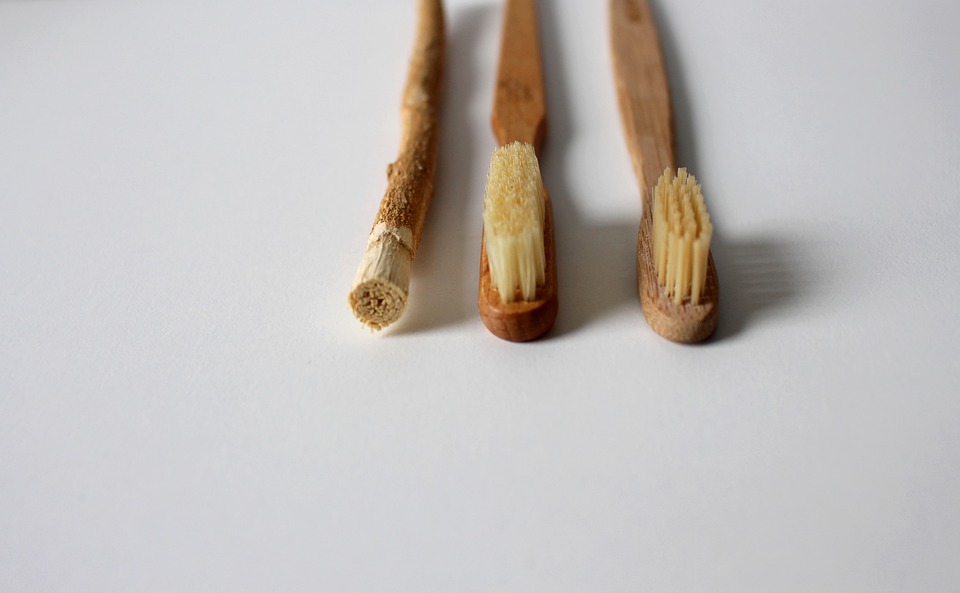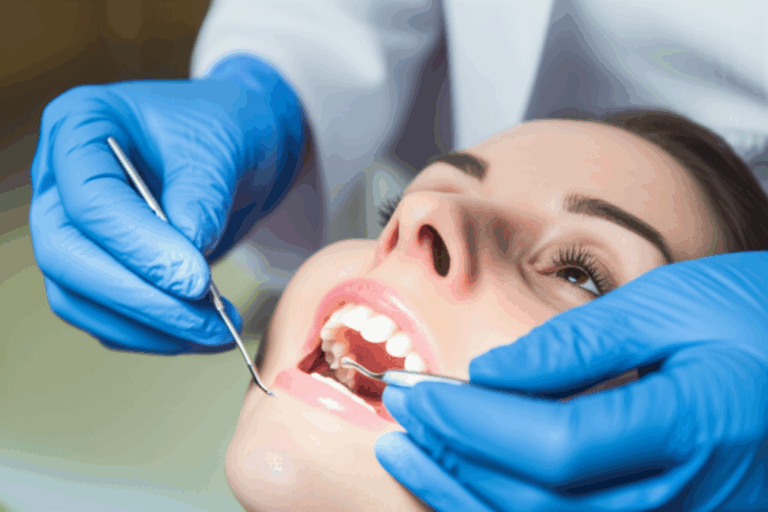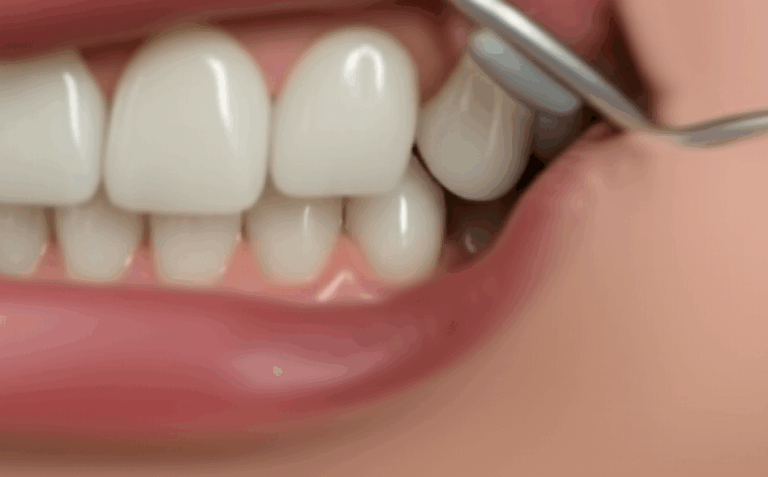
Can Dental Problems Cause Sore Throat? Understanding the Link and When to Get Help
That scratchy feeling in your throat that won’t go away—and now your tooth hurts, too. Is it just bad luck, or can a problem with your teeth really cause a sore throat? You might be wondering this if you’ve had dental work lately, an aching wisdom tooth, or sore gums, and now swallowing makes it worse.
Let’s clear up the confusion. Yes, dental problems can cause a sore throat, and sometimes the reason why can catch you off guard. Sometimes it’s an aching tooth making trouble, sometimes sore gums or even nerves in your jaw can make your throat hurt too.
This easy-to-read guide explains how problems in your mouth can lead to a sore throat, how to tell if it’s from your teeth or just a typical sore throat, what you should do, and how you can keep it from happening. My aim? Give you simple answers, confidence, and next steps for looking after your mouth and your health.
Table of Contents
- The Surprising Connection Between Oral Health and Throat Pain
- Direct Causes: How Oral Infections Spread to the Throat
- Indirect Causes: Referred Pain and Other Reasons
- Recognizing the Symptoms: Is Your Sore Throat Dental-Related?
- When to See a Dentist or Doctor
- Treatment Approaches for Dental-Related Sore Throats
- Prevention: Keeping Your Mouth and Throat Healthy
- FAQs: People Also Ask
- Your Healthy Takeaway: Don’t Ignore the Link
The Surprising Connection Between Oral Health and Throat Pain
Have you ever noticed that when your tooth hurts, your throat sometimes hurts too? Maybe you feel pain in your lower jaw, and suddenly your throat feels scratchy and swallowing is tough. A lot of people chalk it up to a regular cold, but sometimes a dental problem is the real troublemaker behind both.
How does this happen? Sometimes, an infection in a tooth or gum spreads to areas around your face or neck. Other times, nerves in your jaw just “tell” your throat to hurt too, or jaw muscle problems make your throat sore.
Why does this matter? If you treat your sore throat like a simple cold, while the real problem is in your teeth or gums, you could miss signs of a bigger issue. Sometimes, if you don’t treat the dental infection, it can get serious and fast.
Knowing the link (and what to watch out for) helps you take the right steps—and keep both your smile and your throat healthy.
Direct Causes: How Oral Infections Spread to the Throat
First, let’s look at the most direct causes: Infections or swelling that start in your teeth or gums and “spread” to your throat.
Dental Abscesses: A Trouble Spot
A dental abscess is kind of like a big, sore pimple—but it’s inside the tissue around a tooth. There are two main types:
- Periapical abscess: This forms at the root of your tooth, usually after deep tooth decay moves into the soft part (the pulp) inside.
- Periodontal abscess: This starts along the edge of the gum, often with bad gum disease.
These pus pockets don’t always stay where they start. If you don’t treat them, bacteria can leak out into your jaw, cheek, or neck. Sometimes, the infection can reach your pharynx (your throat), making it swell, hurt to swallow, and sometimes giving you a fever.
Symptoms to notice:
- Throbbing tooth pain, often worse at night
- Red, swollen gums or cheeks
- Really bad breath or nasty taste in your mouth
- Swollen neck or jaw
- Sore throat, especially on the same side as your tooth pain
- Fever and chills (means the infection could be spreading)
How common is this? Cavities (which can cause abscesses) are super common, so while abscesses aren’t an everyday thing, they’re not rare. Ignoring one can be risky.
Pericoronitis: Trouble with Wisdom Teeth
Wisdom teeth are those last molars that come in when you’re a teen or adult, and they often cause problems. Pericoronitis is when a wisdom tooth halfway comes through, leaving a flap of gum over it. Food and bacteria like to hide under that flap, which can cause infection.
When this area gets swollen and sore, pain can spread to:
- Your throat
- Your jaw
- Your ear
You might taste something bad, have trouble opening your mouth wide, or even get a fever. Since wisdom teeth are close to your throat, it can feel just like a regular sore throat.
Severe Gum Disease: More Than Just Bleeding
Gum disease isn’t just bleeding when you brush your teeth. When it gets worse (periodontitis), your gums pull away from your teeth and bacteria build up. This bacteria can sometimes spread into the tissue near your throat. Long-term gum problems have even been linked to other infections in your body.
If your sore throat comes with swollen or bleeding gums, make sure to check if your mouth is the main problem.
Indirect Causes: Referred Pain and Other Reasons
Some dental issues make body pain signals cross paths, so it feels like your throat is the problem even though the trouble is somewhere else.
TMJ Problems: How the Jaw and Throat Connect
Your TMJ (temporomandibular joint) is the spot where your jaw opens and closes. When it gets sore, stiff, or moves wrong, you might get tense muscles and pain. TMJ pain can “travel” to your ear, neck, or throat.
Common symptoms:
- Sore jaw or ear
- Headaches
- Clicking or popping when you open your mouth
- Trouble opening your mouth wide
- Sore or tired throat, especially after chewing or talking a lot
If your sore throat shows up when your jaw hurts, or you notice clicking/locking, your TMJ could be the reason.
Nerve Trouble: Pain Signals Going Off
The trigeminal nerve is a main “power line” carrying feelings from your jaw up to your cheek and throat. Deep cavities, cracked teeth, or dental work can bug this nerve, sending pain to places near your throat. Sometimes your brain “thinks” your throat hurts, when it’s really your tooth.
Sore Throat After Dental Work
Ever had a tooth pulled and your throat was sore after? That’s normal. Sore throats after dental work can come from:
- Mouth muscles being open a long time
- Tools or suction irritating your mouth
- Breathing through your mouth during or after the appointment
- Being put to sleep (general anesthesia) with a breathing tube
These sore throats usually go away in a day or two and feel better with simple care at home.
Dry Mouth or Breathing Through Your Mouth
Dry mouth might not seem like a big deal, but spit helps keep bacteria away. When you’re dry, germs grow and throat tissue dries out. Dental issues that make you breathe through your mouth (like jaw pain or crooked teeth) can dry out your throat and make it sore.
Recognizing the Symptoms: Is Your Sore Throat Dental-Related?
So, how can you tell if your sore throat is from your teeth or if it’s just a cold or strep throat? You can’t always know, but there are some clues that your mouth is the real problem.
Check the Usual Signs
| Symptom | Usual Sore Throat (Cold/Flu) | Dental-Related Sore Throat |
|---|---|---|
| Runny Nose | Common | Rare |
| Cough | Common | Rare |
| Tooth Pain | Sometimes (with sinus pain) | Common (aches, throbbing) |
| Swollen Gums | Rare | Common |
| Pain on One Side | Rare | Common (worse on one side) |
| Bad Breath/Taste | Sometimes | Very common |
| Fever/Chills | Sometimes | Possible with infection |
| Face/Jaw Swelling | Rare | Possible |
| Swallowing Trouble | Rare unless it’s severe | Possible with abscess/TMJ |
Big hints it’s dental-related:
- Your tooth or gums start hurting at the same time as your throat
- Bad breath or weird taste that brushing won’t fix
- Swelling in your jaw, cheek, or neck (not just your throat)
- Throat hurts mostly on one side, especially if that matches a tooth problem
- Can’t open your mouth as wide as usual
Don’t see these? If you’ve got body aches, a cough, runny nose, or you feel tired all over, you probably just have a virus. But if you’re not sure and your symptoms last or get worse, see a dentist or doctor.
When to See a Dentist or Doctor: Signs You Need Help
Knowing when to wait it out or when to get help is important. Some dental infections can get worse fast—don’t wait if you have these warning signs:
Call for Help Right Away If You Have:
- Fast swelling: Face, jaw, throat, or neck
- Hard to breathe or swallow: Could mean swelling is in your airway
- High fever and chills: Especially with other symptoms
- Severe pain that won’t go away: Even with pain medicine
- Spreading redness on your skin: Especially if you see red streaks from your jaw up your neck
- Drooling or can’t open your mouth
A dental infection that gets into your jaw can cause cellulitis, Ludwig’s angina, or other serious problems. If you see these, get care fast—go to urgent care, call your dentist, or go to the ER.
What Will the Dentist or Doctor Do?
- Ask about your health, medicine, and dental issues
- Look at your teeth and mouth (to check for abscess, swelling, loose teeth, or nerve pain)
- Take x-rays or a CT scan if needed
- Do blood tests (if they think the infection has spread)
- Send you for more treatment if the infection is really bad
Remember, it’s much easier (and safer) to catch a dental infection early than to fix it once it’s gotten worse.
Treatment Approaches for Dental-Related Sore Throats
Now, let’s talk about how to feel better and fix the real problem.
What the Dentist Can Do
Depending on what’s going on, your dentist might suggest:
- Draining the abscess: Cleaning the pus and infection; might need a small cut or a root canal to get to it
- Root canal: Takes out the bad tooth pulp, lessens the pressure, and keeps infection from spreading
- Tooth pulled out: Often done with bad wisdom tooth trouble or if an abscess can’t be fixed
- Antibiotics: To stop infection—but medicine alone isn’t a full fix; you need to fix the cause too
- TMJ help: Things like bite guards, gentle jaw exercises, or medicine to help jaw pain
Sometimes your dentist will send you to a specialist, especially if you need crowns, bridges, or implants. For big repairs, they might use a dental ceramics lab or a crown and bridge lab for the best fit.
Taking Care of Symptoms at Home
While you wait for treatment, or if your symptoms are mild, try these steps:
- Pain medicine: Acetaminophen or ibuprofen (as the label says)
- Warm saltwater rinses: Soothe sore spots
- Eat soft foods: Stay away from crunchy or spicy foods
- Drink lots of water: Keeps your throat moist
- Don’t smoke or drink alcohol: Both slow healing and irritate your mouth
- Ice packs: For swollen jaw or cheek
But remember, these home tips can’t fix an infection by themselves. They help you feel better, but see your dentist to fix the real problem.
Should You Try “Home Remedies” for a Dental Sore Throat?
You might find internet tips about garlic, oil pulling, or herbal rinses. Some home ideas might help for small mouth problems, but they can’t fix infections. If you let an abscess go, it could get dangerous fast.
Prevention: Keeping Your Mouth and Throat Healthy
As the saying goes, “An ounce of prevention is worth a pound of cure.” The best way to stop dental problems from causing sore throats is to keep problems from starting.
Simple Habits That Keep You Healthy
- Brush two times a day: Use a soft toothbrush and fluoride toothpaste to kick out germs and stop cavities
- Floss every day: Cleans between your teeth and under the gumline
- Use mouthwash: Fights off extra germs
- Change your toothbrush: Every 3-4 months, or after being sick
Go to Regular Dental Check-Ups
These visits catch little problems (like cavities or gum disease) before they turn into big ones. Think of it like a tune-up for your mouth! If you’re getting more advanced work done (like crowns or implants), ask if your dentist uses a trusted implant dental laboratory for the best results.
Don’t Ignore Dental Pain or Swelling
Pain is your body’s way of saying something’s wrong—if you have:
- Achy or swollen gums
- A “pimple” or bump on your gums
- Tooth pain that comes and goes or just won’t quit
call your dentist quickly. Waiting gives infections time to get worse.
FAQs: People Also Ask
Can a tooth infection make my neck glands swell?
Yes. If you have a dental infection, the lymph nodes (small, soft bumps) under your jaw or in your neck might feel sore and get bigger. This means your body is fighting the infection from an abscess or bad gum problem.
What tooth problems can cause throat pain?
Several issues can do this, like:
- Dental abscesses (from deep tooth decay)
- Pericoronitis (wisdom tooth infection)
- Bad gum disease
- Cracked teeth with nerve exposed
- Jaw joint (TMJ) problems
- Less commonly, a badly fitting dental piece or very dry mouth
Can an infected wisdom tooth spread?
Yes, and it can get serious. If you don’t treat an infected wisdom tooth, infection can move into your jaw, neck, or even mess with your airway. If you see swelling, fever, bad pain, or it’s hard to swallow, see a dentist fast.
How long does throat pain from a tooth infection last?
It depends. If it’s from dental work, it might clear up in a day or two. If there’s an active infection or abscess, the sore throat sticks around (and may get worse) until you fix the real problem—sometimes for days or weeks.
Is a dental sore throat serious?
It can be. Sometimes it goes away if it’s mild, but any infection with swelling, trouble swallowing, or fever means you need to see a professional. Dental infections can get worse faster than you think.
Your Healthy Takeaway: Don’t Ignore the Link
Here’s what to remember:
- Dental problems can cause sore throats: through infection, nerve pain, or even jaw joint trouble.
- Classic signs: A sore throat with tooth pain, gum swelling, bad breath, or puffy cheeks usually means it’s coming from your teeth or gums.
- Don’t wait if: Swelling goes up, it gets hard to breathe or swallow, or pain is very bad—see a dentist or doctor right away.
- Treatment works: Fixes like draining abscesses, root canals, pulling teeth, and giving antibiotics (when needed) can clear up both the infection and the sore throat.
- Prevention is the best medicine: Brushing, flossing, and seeing your dentist regularly can stop problems before they get big.
A sore throat that’s from your teeth or gums doesn’t need to be a puzzle. If you need special care (like crowns or bridges), your dentist can team up with labs like a reliable zirconia lab for top results.
You can take care of your smile and your throat. Trust your gut, play it safe, and keep in mind: Your mouth health is a big part of your overall health. When you’re not sure, reach out—and give yourself the gift of a healthy mouth and a pain-free throat.
References
- World Health Organization, Global Oral Health Program
- American Dental Association
- National Institute of Dental and Craniofacial Research
- British Journal of Oral and Maxillofacial Surgery
- “Dental Abscesses: Diagnosis and Management,” ADA Guide
Checked by a licensed dentist. This article is for general info only and shouldn’t replace real medical advice. If you’re worried about your symptoms, call a healthcare provider.
Want more tips on keeping your mouth and body healthy? Check out our guides on teeth health and dental care. Stay proactive, stay informed, and keep smiling!








